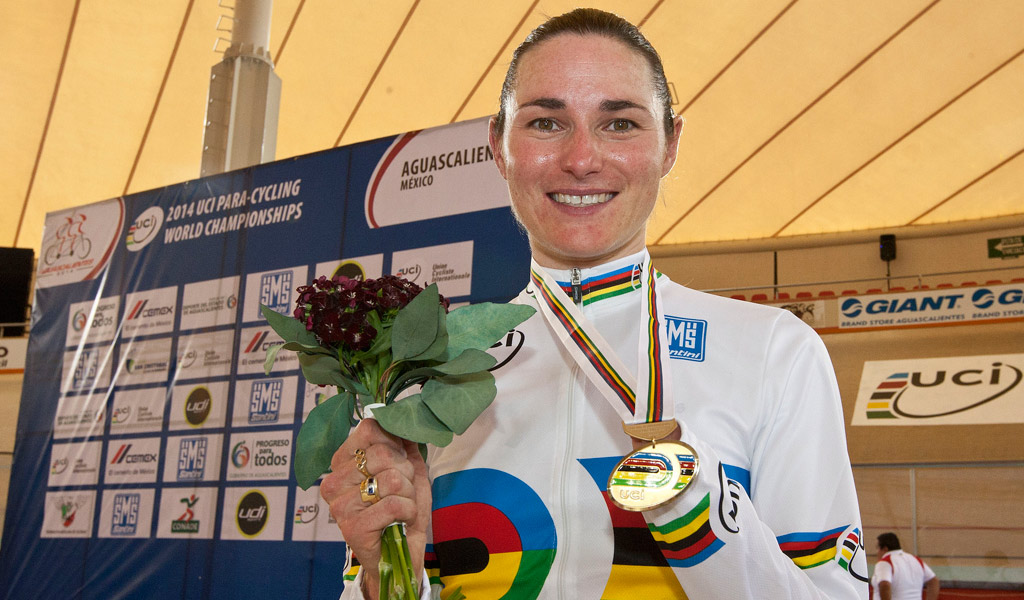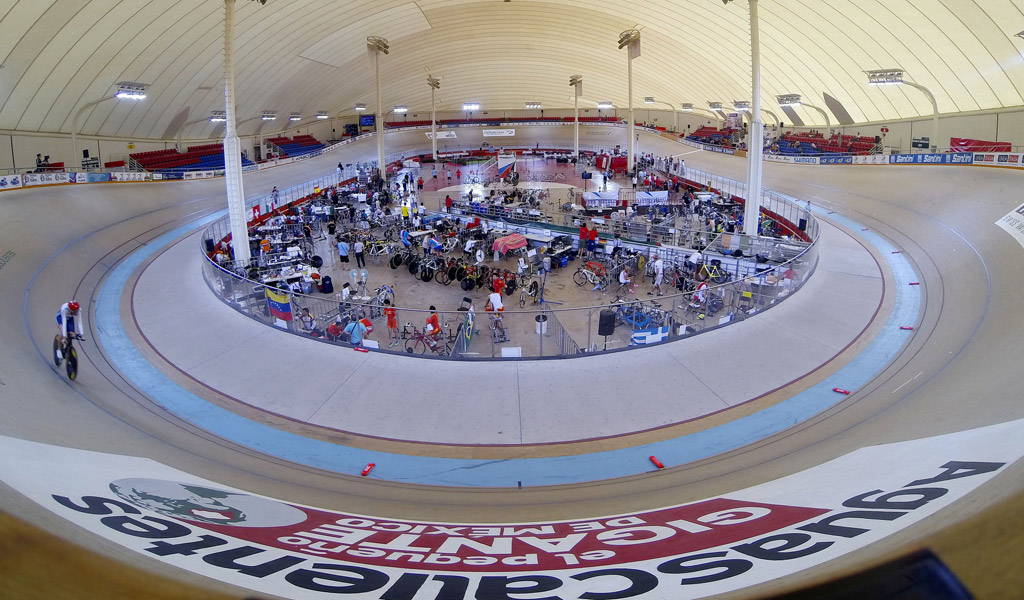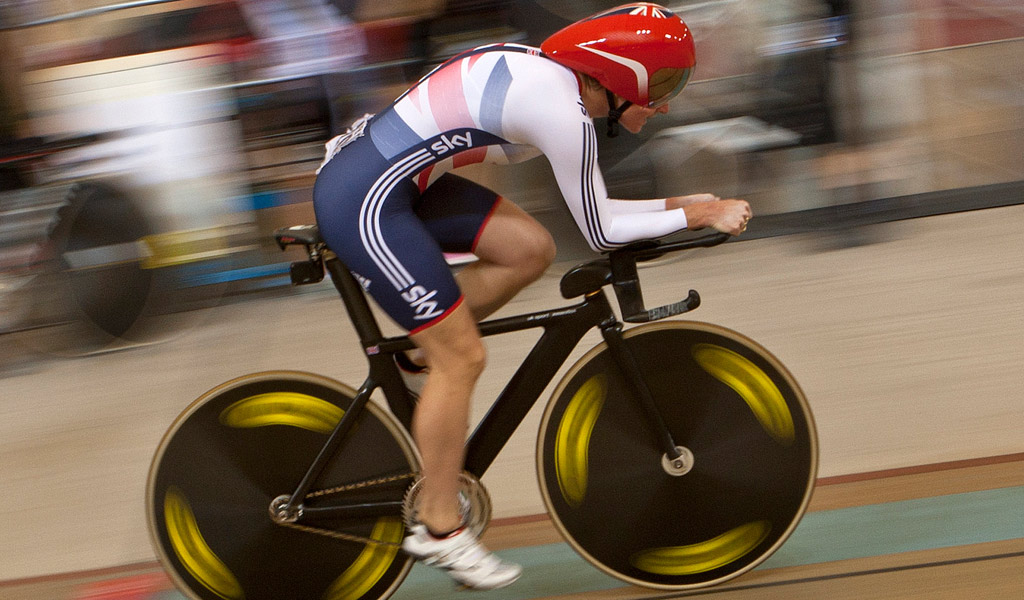In terms of concept, it’s one of the most simple in sport. In terms of effort, it’s one of the most brutal.
Cycling’s world hour record requires riders to ride as hard, and as far as possible, in one hour on a track. No tactics, other than pacing strategy. No direct competition, other than the clock.
But when physical effort is factored in, the scale of the task becomes clear. Riders have to go deeper than at any other point in their careers.
They know they are battling not just against the times of those who have gone before, but also those who will follow.
It’s not simply about racking up the best distance. It’s also crucial to try to push the bar as high as possible in order to fend off the next set of riders. Breaking the record is huge for a career, but keeping it? That’s even better.
As a result, nobody takes on the hour record lightly. There’s weeks, often months of preparation. Many people backing the one individual on the track. It’s a solo effort, but also one supported by coaches, teams, engineers and aerodynamicists.
A small army of people all working towards a common goal: eking out as many kilometres, metres and centimetres as is possible in 3600 seconds.
“I’m as confident as you can be, but it’s not a foregone conclusion”
Sarah Storey has a much smaller army behind her compared to some recent hour record attackers, with five people directly helping her, including her husband Barney. However she will ride every bit as hard as those who are part of the top male teams.
Since last September the men’s hour record has been toppled three times; Jens Voigt (Trek Factory Racing) broke it on September 18, and the mark was then improved on October 30 by Matthias Brandle (IAM Cycling). Jack Bobridge (Budget Forklifts) came up short in his own bid at the end of last month, but BMC Racing Team’s Rohan Dennis was successful last Sunday.
As for the women’s record, it hasn’t changed in many, many years. Dutchwoman Leontien van Moorsel covered 46.065 kilometres in Mexico in 2003, and nobody has beaten that since.
A dozen years later, Storey is stepping up to the challenge and will make her own bid on February 28th in the Lee Valley VeloPark Olympic velodrome in London.
“I was approached by Revolution [track races] in the UK as lots of people had suggested I would be a good first Brit to try the new format,” she told CyclingTips this week, responding to questions after flying back from a training camp with her husband and 19 month old daughter Louisa.
“I did some initial testing to see what the physiological demands would be at various paces above the current record. My team and I decided it was an achievable target.”
Since then Storey has worked hard to be ready. She said that things have gone to plan, other than some illness at the end of January, and that the past week has been good.
“I have now finished all my road camps and just have two weeks of track to put the finishing touches to the preparation,” she states, adding that this time will be used to do a long test on the track, finalise her nutrition and hydration strategy and also to rest up.
Van Moorsel is one of the most successful female riders of all time, taking multiple world championships, but Storey said that she is fully focussed on beating her mark.
That focus includes assessments of what speed she should be able to maintain during the hour-long effort.
“I have tested at several paces to see what the energy cost will be and power requirements. The decision of what schedule I will ride to will be decided nearer the time,” she explains. “Conditions in the track and my own condition will have a bearing on the final pace choice.”
Asked if she was confident of taking the record, she expressed some cautious optimism but didn’t want to make predictions.
“I’m as confident as you can be,” she answers. “[But] if it was a foregone conclusion, then it would be boring to try…”
Mixing Paralympic and regular competition:
Being able to realistically challenge for something as tough as the hour record already marks Storey out as one of the top riders in the sport, but there is more to her tale than just the strength of her legs and lungs.
She’s also shown considerable strength of mind.
She was born without a fully developed left hand but didn’t let that deter her from getting stuck in during school activities.
Others might have hung back, but she embraced challenge and set about trying to be the best in whatever she tried doing.
“I was just another kid that loved sport,” she says. “While I had the occasional gadget to help with things like the serve in table tennis - you have to hold the ball in one hand and bat in the other when serving in an able bodied game - I just got on with being the competitive person I am.
“I would have been an athlete regardless of my hand. Sport is part of my DNA and my impairment is just a coincidence.”

In the early years she was drawn towards the pool and first showed the extent of her talent there.
“I did every sport possible at school but swimming was the sport I was good at,” she explains. “It was the first I got selected for at international level.
“I was fortunate to have an amazing head teacher at primary school and a fantastic swimming teacher at our school club. They really helped develop my sporting prowess.”
Making rapid progress, Storey was selected for Great Britain and racked up international experience. At 14 years of age she attended the Paralympic Games in Barcelona in 1992 and was highly successful there. She clocked up up two golds, three silvers and a bronze medal.
Working hard at the sport, she followed that up with gold meals in the 1994 IPC world championships, then returned to the Paralympics in 1996, 2000 and 2004. Those Games saw her add three more gold medals, five silver gongs and two bronze to her tally.
However a series of ear infections kept her out of the pool in 2005. Frustrated at being unable to train, she switched discipline, ramping up the time she had already been spending on a bike to make it her main sport.
“I decided I needed a new challenge and after using cycling as a cross training tool in my swimming days, it seemed a logical progression,” she says, talking about the transition.
Storey was equally successful in her new discipline, netting two gold medals in Beijing 2008 and then doubling that haul four years later.
Having taken 11 gold medals in all, she has equalled the total of Tanni Grey-Thompson, thus joining her as Britain’s most successful female Paralympian in history.
It’s an accolade that would be enough for most, but she wanted more than that.
“I always wanted to be judged on able-bodied standards”
It’s said that it is important to push outside your comfort zone. Storey has taken that to heart, also performing strongly in events away from paracycling competition. She has clocked up national titles in the individual pursuit and the points race and achieved success abroad.
In 2013 she was second in the stage three time trial in the 2.2-ranked Tour de Feminin in the Czech Republic. She was also third in the mountains classification, fourth in the time trial and fifth in the points ranking in the Tour Féminin en Limousin in France, also taking ninth overall.
Returning from the birth of her first child, the 2014 season brought another breakthrough with victory in the stage two time trial in the Tour de Bretagne Féminin.
“The highlights have been amazing,” the 37 year old says, when prompted to list her standout moments. “Four gold medals in London, unbeaten in the Paracycling individual pursuit in ten years. Being on the podium with Marianne Vos in the Tour of Limousin and winning a stage in the Tour of Bretagne.”
Part of what makes Storey a remarkable athlete is this ability to take on and beat athletes who are without any impairment.
Rather than focussing on an area of the sport where she knew she could dominate, she wanted to push her boundaries and to take on others too.
That spirit has helped earn her numerous accolades, including the title of Dame Commander of the Order of the British Empire in 2013 and, more recently, securing a second nomination for the Laureus World Sportsperson of the Year with a Disability.
The drive to tilt at the top targets is partly behind her desire to try to break Van Moorsel’s record.
“Competing in able-bodied events too was always something I did in swimming,” she explains. “So I didn’t see cycling as a reason not to continue that.
“Also, I always wanted to be judged on able bodied standards in cycling because physically my hand doesn’t make me slower; it just makes bike handling, braking, changing gear and starting on the track more technically difficult.

“I race C5 women with similar levels of impairment and the standard has risen so much in the last 10 years with my competitors also seeking opportunities in the able bodied peloton and on pro teams.”
Storey’s participation in those races is not without complications. She’s unable to grip with her left hand and so she uses what she terms a safety hoop.
This provides her with anchorage, making it possible for her to pull on the bars when starting pursuits or when sprinting in other events.
Still, that’s never been a barrier to her. She plans to keep on taking on her competitors, both in paracycling contests and also in regular UCI and national races. Her plans for the year include defending her two road and two track titles, targeting the national road race championships and also racing as well as possible with her Pearl Izumi Sports Tours International Cycling Team.
Working towards the Rio Olympics is also a goal.
Before then, though, she has the not insignificant challenge of the world hour record.
Although altitude would offer an advantage over sea level – and put her on a more level playing ground in terms of trying to beat Van Moorsel’s record, which was set in Mexico – she said that cost makes this impossible.
Instead, the London velodrome will be where she digs in, knuckles down and chases her own place in cycling’s history.
Final question: if she breaks the record, where would that rank amongst her achievements thus far?
“It’s not something I have given much thought to,” she admits. “As with any big event my focus is currently on the process of getting there.
“The outcome hasn’t really featured as that can be distracting to what is a huge mental challenge too.”
—-
Note: The UCI confirmed to CyclingTips on Friday that viewers around the world will be able to watch the bid live on Saturday, February 28th.
“The UCI supports Sarah Storey’s attempt,” spokesman Louis Chenaille told CyclingTips on Friday. “Brian Cookson will be attending. We will be paying in full the TV production and we will broadcast the attempt live on the UCI Youtube channel.”

